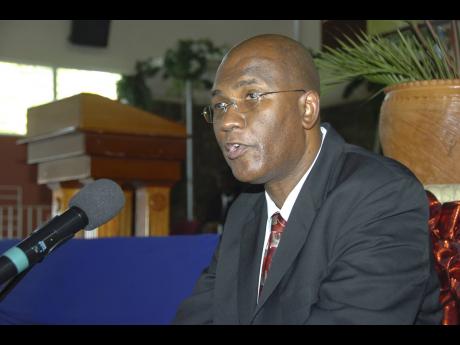Poll: 43% of J’cans say situation has improved since 2020
Economist credits psychological effect of lifting of COVID restrictions for result
Nearly half of the Jamaicans quizzed in an islandwide survey have indicated that they are better off now than three years ago, even as global inflation soared to an all-time high in two decades, geopolitical conflicts persist, and the coronavirus pandemic remains a health threat.
Forty-three per cent of the 1,002 Jamaicans polled last month said that their personal situation has got much better or a little better when compared to 2020 at the onset of COVID-19 .
On the contrary, 32.5 per cent of respondents indicated that their situation has either got a little worse or much worse since that time, while 24 per cent said that their situation had not changed.
The findings are contained in the latest Don Anderson opinion poll, commissioned by the Opposition People’s National Party (PNP).
The poll has a margin of error of plus or minus three per cent and was conducted between February 17 and 26 among registered voters.
“It is worthy of note that a significant number, 24 per cent of those polled, say that there has been no change in their personal situation since 2020,” said Anderson, whose Market Research Services Limited team conducted the survey.
He said that the jury remains out as to whether it can be concluded that this is a positive or a negative finding, since there is really no benchmark against which this personal assessment can be measured.
“What is irrefutable is that when combined with those who feel negative about their own situation since 2020, it indicates that for the majority of persons interviewed– close to 57 per cent – in fact, say that things have not improved for them,” the pollster noted.
For 2020, the annualised unemployment rate, according to data from the Statistical Institute of Jamaica, stood at 10.2 per cent, up from 7.7 per cent in 2019. This tapered to 8.4 per cent in 2021. A 6.6 per cent rate was recorded as at October 2022.
Still, cost of living in Jamaica was among the highest in Latin America, the Economic Survey of Latin America and the Caribbean 2022, published by the Economic Commission for Latin America and the Caribbean, concluded.
The country’s inflation rate, at that time, stood at 10.9 per cent, driving up consumer prices and placing the island ninth among 33 nations in the region.
Last month, The Gleaner reported an annual fall in inflation to 8.1 per cent bringing it closer to the top end of the central bank’s target band.
The Bank of Jamaica (BOJ) has earmarked a four to six per cent inflation target as optimal to support the country’s long-run growth and noted that it is also consistent with the programmed reduction in public debt.
A week ago, the BOJ held its policy interest rate steady for a second time at seven per cent after almost a year of consecutive increases.
The move had caused borrowers to face higher costs as the bank sought reduce consumer spending in a bid to tackle inflation.
Economist Dr Peter-John Gordon said the poll findings for Jamaicans who have fared better are unsurprising.
“Remember that we went into lockdown for a considerable period because of COVID. Many persons suffered loss of income during that period. White-collar workers who could work from home were not as badly affected as many others,” he stated.
Gordon, a Department of Economics lecturer at The University of the West Indies, Mona, said that along with tourism workers, who were impacted greatly, many businesses also felt the crunch, including some that shuttered.
Those that sold food to institutions such as hotels and schools were also badly affected and were not able to switch seamlessly from providing food to these institutions to supermarkets, which already had their supply chains.
People who made a living from entertainment and sports were also badly affected, he said, while the closure of offices and curfews impacted restaurants and iterant vendors like fruit sellers.
“There is also the psychological effect of having restrictions lifted which would make people feel better. The result that people are feeling better about their economic condition now, compared with the period of COVID restrictions, is not surprising. This is very different from comparing personal economic circumstances over a ‘normal’ three-year period,” he told The Gleaner on Monday.

